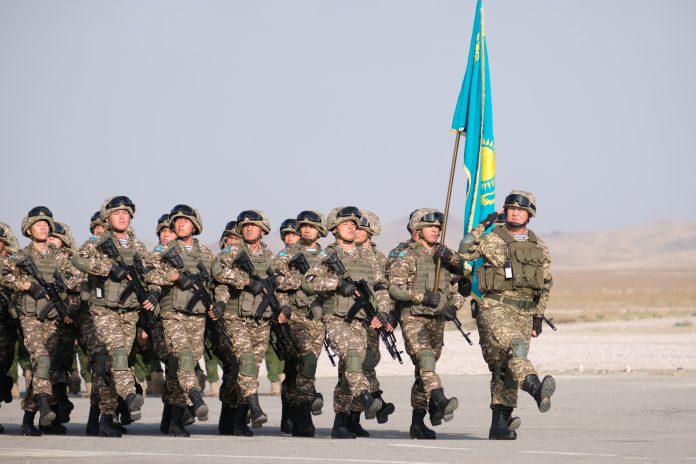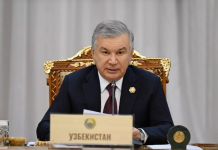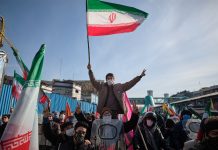By Assolya Mirmanova
In September this year, Beijing hosted the 30th International Conference of the Asian Media Information and Communication Centre (AMIC), bringing together researchers from across Asia and the globe to discuss the challenges of the information space and responses to emerging threats. Among the key topics were media, information, and digital literacy.
Understanding Key Literacies
• Media literacy refers to the ability to comprehend, critically evaluate, and create media content in various forms. It involves understanding the role of media in society and developing skills for analysis, interpretation, and participation in media production.
• Information literacy is the ability to effectively search for, assess, and use information from various sources. It emphasizes critical thinking, data acquisition, and distinguishing credible information from false or inaccurate content.
• Digital literacy focuses on the effective and safe use of digital technologies and the internet to access, evaluate, create, and share information. It includes skills related to using digital devices and understanding digital security and ethics.
While these literacies overlap, they each address specific areas:
• Media literacy emphasizes understanding media content and its societal impact.
• Digital literacy focuses on technical skills in digital environments.
• Information literacy prioritizes evaluating and using information effectively.
The Role of Media Literacy in Combating Radicalization
Asia, with its vast youth population, faces heightened risks in all its subregions. Representatives from Kazakhstan, including members of the Republican Public Association “Counterterrorism Committee,” presented a report on the state and development of media literacy in the country, initiated as part of the project “Peace through Partnership: Kazakhstan’s Role in Regional Security.” The presentation sparked significant interest as it addressed youth radicalization—a pressing issue in a world where technology empowers destructive groups and extremist activities are on the rise.
Access to an unlimited flow of information, often difficult to verify or filter, makes users susceptible to false narratives and manipulation. Modern extremist groups leverage disinformation tactics, creating compelling, emotionally charged stories that appeal to notions of justice, religious, and cultural beliefs.
Radicalization: A Five-Stage Process
Scholars have identified five stages in the radicalization process. Media, information, and digital literacy are critical at the initial stages, where preventive efforts can be most effective:
1. Awareness of perceived injustice: Individuals begin to feel or believe they are subject to social, political, or economic discrimination, leading to dissatisfaction. At this stage, information literacy—skills to distinguish fact from misinformation—can steer individuals away from dangerous paths.
2. Seeking blame: Individuals seek causes or culprits for their grievances. Extremist groups exploit social media and digital platforms to spread propaganda, targeting vulnerable groups like youth with messages that offer a false sense of belonging and noble purpose.
3. Demonization of the perceived adversary: At this stage, individuals start viewing opposing groups or the state as hostile. Skills in recognizing radical content and disinformation can enable citizens to report threats and help law enforcement prevent escalation.
4. Moral justification of violence: As the radicalization process deepens, individuals may begin to see violence as a legitimate means of addressing grievances. Countering extremist narratives through media literacy reduces the resources available to those who seek to recruit and radicalize.
5. Preparation for terrorist activity: Individuals plan and organize violent acts. By this stage, societal intervention has limited impact, underscoring the need for earlier preventive efforts.
Kazakhstan’s Approach to Media Literacy and Security
Kazakhstan actively strengthens media literacy and counteracts radicalization through government programs, legislative initiatives, and partnerships with international organizations. The Ministry of Education incorporates media literacy elements into school curricula, while universities are introducing specialized courses. The “Digital Kazakhstan” program enhances digital infrastructure and public digital literacy. Meanwhile, the National Action Plan to Counter Religious Extremism and Terrorism includes measures to promote media literacy and critical thinking among youth.
Collaboration with organizations like UNESCO, OSCE, and Internews supports these initiatives, including projects like “STRIVE Asia,” which builds youth resilience against violent extremism through education in media literacy and critical thinking.
Despite progress, challenges remain, such as uneven access to education in rural areas, shortages of qualified personnel, and cultural and linguistic barriers. The Counterterrorism Committee advocates for broader educational program coverage, investment in workforce training, enhanced international cooperation, and rigorous evaluation of governmental initiatives.
Central Asia’s Unique Role
The shared cultural and societal values in Central Asia, such as strong family ties, respect for elders, and the influence of Islam, offer opportunities to consolidate efforts against extremism. Kazakhstan’s strategic and diplomatic leadership demonstrates readiness to address regional threats through coordinated actions, information-sharing, and joint solutions.
The “Counterterrorism Committee” recommends embedding media literacy into educational systems from primary school and engaging civil society and private organizations in delivering workshops, training, and online courses tailored to diverse social groups.
A Strategic Resource for Security
Media literacy is a vital strategic resource in combating destructive ideologies. As extremism increasingly exploits the digital space, integrating media literacy at all educational levels is essential. It fortifies national security and cultivates a society of informed, critically thinking citizens equipped to resist extremist narratives and withstand informational pressures.
About the Project
The “Peace through Partnership: Kazakhstan’s Role in Regional Security” project, implemented by the Counterterrorism Committee, Republican Public Association strengthens international cooperation and resilience in Central Asia. Supported by Kazakhstan’s Ministry of Foreign Affairs and funded by the Civil Initiatives Support Center, it aims to enhance collaboration with key international partners and NGOs in countering extremism and terrorism in China, the UK, and other countries.
Founded in September 2016 in response to terrorist attacks in Kazkhstan, the Counterterrorism Committee unites citizens, society, and government agencies to address terrorism, extremism, and other global threats to Kazakhstan.
Author:Assolya Mirmanova is PhD Candidate & Deputy Chairperson of
Counterterrorism Committee, RPA from Kazakhstan.






